
nonplus
non(not)-plus(more)
v.使困惑 [to render utterly perplexed]
ex. nonplus a person
n. [ A state of perplexity, confusion, or bewilderment]
字源:not more, no further, i.e., a state in which nothing more can be done

nonporous
non-porous
porous
pore-ous
adj.能滲透的;滲水的;透風的 [permeable by water, air, etc.]
adj.有孔的
字源:from Gk. poros "a pore," lit. "passage, way ," from PIE *por- "going, passage
ex. port
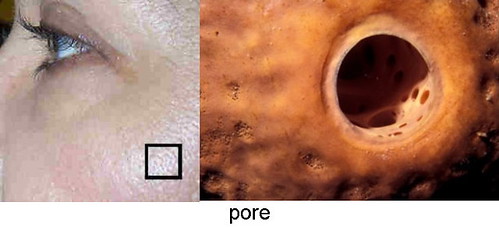
nonradioactive
non-radioactive
radioactive
radio(light)-active
adj. 放射性的
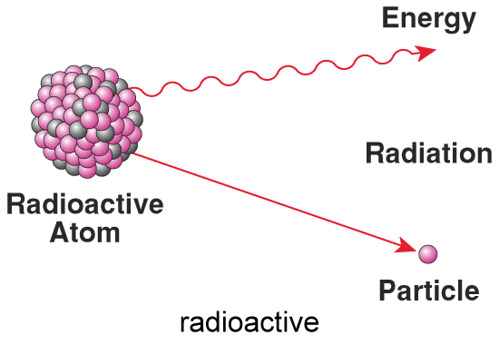
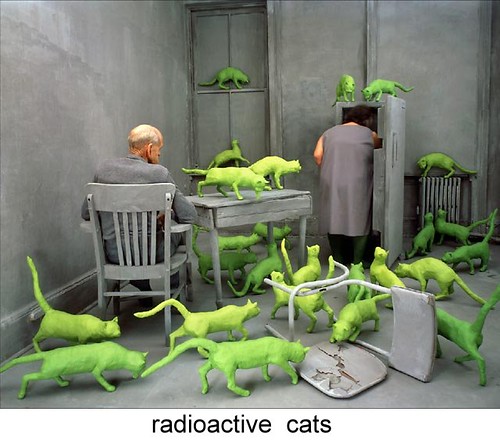
nonsensical
non-sense-ical
adj. [Lacking intelligible meaning]
ex. a nonsensical jumble of words.
ps.
sense
from L. sensus "perception, feeling, undertaking, meaning," from sentire "perceive, feel, know," prob. a fig. use of a lit. meaning "to find one's way," from PIE base *sent- "to go"
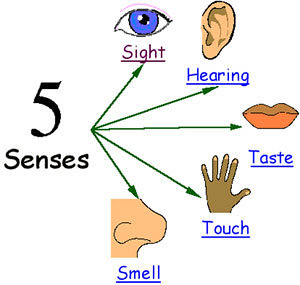
nonthreatening
non-threaten-ing
adj. [not constituting a threat ]
ps.
threat
O.E. þreat "crowd, troop," also "oppression, menace," related to þreotan "to trouble, weary," from P.Gmc. *threutanan (cf. Ger. verdrießen "to vex"), from PIE *trud- "push, press"
還記得intrude, extrude呼
nonviable
non-viable
adj. [not capable of living, growing, and developing, as an embryo, seed, or plant. ]
ps.
viable
from L. vita "life;" see vital + -able. /*vi與life的發音很類似*/
norm
n.基準 [A standard, model, or pattern regarded as typical]
ex.a social norm that says drunkenness is inappropriate behaviour.
ps. normal, normalize
字源: L. norma "carpenter's square, rule, pattern,"
nostalgia
nost(home)-alg(pain)-ia
n.懷舊之情 [A bittersweet longing for things, persons, or situations of the past.]
ex. Her work is pervaded by nostalgia for a past age.
她的作品充滿懷舊之情.
n.鄉愁 [The condition of being homesick; homesickness]
字源:
coined 1668 by Johannes Hofer, from Gk. nostos "homecoming" + algos "pain , grief, distress"
Hofer introduced nostalgia or mal du pays "homesickness" for the condition also known as mal du Suisse "Swiss illness" or Schweizerheimweh "Swiss homesickness", because of its frequent occurrence in Swiss mercenaries who in the plains of lowlands of France or Italy were pining for their native mountain landscapes. English homesickness is a loan translation of nostalgia.
聽歌時間--平井堅 NOSTALGIA ( lyrics )

nostrum
n.秘方 [A medicine whose effectiveness is unproved and whose ingredients are usually secret; a quack remedy.]
ex. Some nostrum peddled (挨戶兜售) as a cure for unemployment.
鼓吹可解決失業問題的妙策.
字源:直接從 L. nostrum 而來,當時的意思是our, ours"我們的東西",為什麼會當藥了,因為the seller's calling the drug 「our」 drug,因為常常出現our drug,所以our 也就是nostrum就變成藥的俚語了。跟nost- "home" 完全沒有關係。
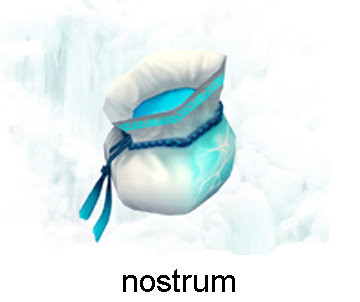
notable
note-able
adj.值得注意的 [worthy of note or notice]
n.名人;顯要人物 [a prominent, distinguished, or important person. ]
notebook 大家應該都知道,是筆記本的意思。而note其實的意思就是"mark, sign, or to know",所以notable的概念就是值得作筆記作記號的,所以當然有"worthy of note or notice"的概念囉。
notch
n.凹痕 [an angular or V-shaped cut, indentation, or slit in an object, surface, or edge. ]
v.在...上刻凹痕 [To cut a notch in]
字源:1577, probably a misdivision of an otch , from M.Fr. oche "notch," from O.Fr. ochier "to notch," of unknown origin.
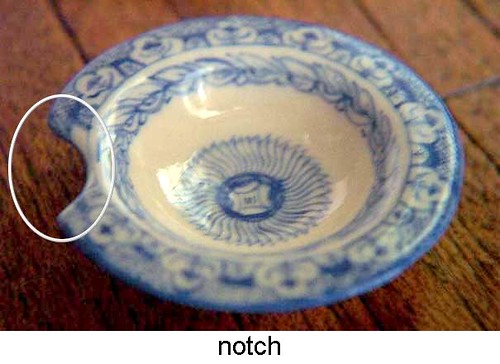
notorious
note(know)-ory-ous
adj.惡名昭彰的,聲名狼藉的 [ Known widely and usually unfavorably; infamous]
ps. 當一個人壞到大家都知道時,就是notorious了
ex. Living space is notoriously small in Tokyo.
字源:1540s, "publicly known," from M.L. notorius "well-known, commonly known," from L. not us "known," pp. of noscere "come to know"
Notorious B.I.G.別名Biggie Smalls,出生於1972年的單親家庭,是家中的獨自,由母親一個人帶大,據他的母親所言,Notorious還不會走路就已經會唱歌說話。
即使成績優異,十七歲他仍選擇了退學,開始在街頭混日子,在一次失手後入獄九個月,出獄後用朋友的設備錄製了一張Demo,寄到The Source參加比賽,沒想到一炮而紅,他加入了Sean "Puffy" Combs的唱片公司Bad Boy,開啟了他輝煌的說唱生涯,並數度登上告示牌排行榜冠軍。
但是聲名大噪的他,嚴然成為東岸嘻哈霸主,但也因此捲入東西岸說唱戰爭中,1994年,西岸樂手Tupac在紐約錄音室遭到槍擊,為日後悲劇埋下伏筆,沒多久,1996年9月Tupac就遭到槍擊身亡。接著 Notorious也在1997年3月9日遭到不明身份的槍手襲擊,成為另一個犧牲在紛爭之下的樂手。
nourish
nour(=nurse)-ish
v.養育;滋養 [To provide with food or other substances necessary for life and growth; feed.]
ex. We need good food to nourish the starving infants.
我們需要好食品滋養這些挨餓的嬰兒。
ex. I could find nothing to nourish my suspicion.
我找不到任何懷疑的根據。
字源: L. nutrire "to feed, nurse, foster, support, preserve," from * nutri (older form of nutrix "nurse"), lit. "she who gives suck," from PIE base *(s)nu- "flow, let flow," hence "to suckle"
在原始印歐語中,nu, 或者是snu是flow,or let flow的意思。而到了拉丁文中,這種flow就衍生成哺乳,較古老的形式是"nutri-" 奶媽, 保姆。
而nourish的字型是受到古法文的影響而來的。
下面我們就來看一堆與nutri-有關的單字
| nour ish | v.養育;滋養 | [nour(=nurse)-ish] |
| nurt ure | n/v.養育 | [nurt(=nurse) + ure] |
| nutri ent | n/a.營養(的) | providing nourishment or nutriment |
| nutri ment | n.營養物 | a source of materials to nourish the body |
| nutri tion | n.供給營養 | The process of nourishing |
| n.營養物 | =nutriment | |
| n.營養學 | ||
| nutri tive | adj. | of or relating to nutrition |
----------------------------------------
nova
n.新星 [a star that suddenly becomes thousands of times brighter and then gradually fades to its original intensity.]
字源:1877, from L. nova, fem. sing. adj. of novus "new" used with stella "star" (a fem. noun in L.) to describe a new star not previously known. Plural is novæ.
novelty
novel(new)-ty
n.新穎,新奇 [The quality of being novel; newness.]
ex. A British businessman who can speak a foreign language is still something of a novelty.
能說某種外國語的英國商人仍可算是新奇人物.
ps.
novel 大家比較知道的字義應該是當小說。
不過你仔細看,nov 與 new 像不像呢?
沒錯,v與w是可互通的,實際上本是同根生阿。
小說,在早期是被當作新奇的事物的呢。